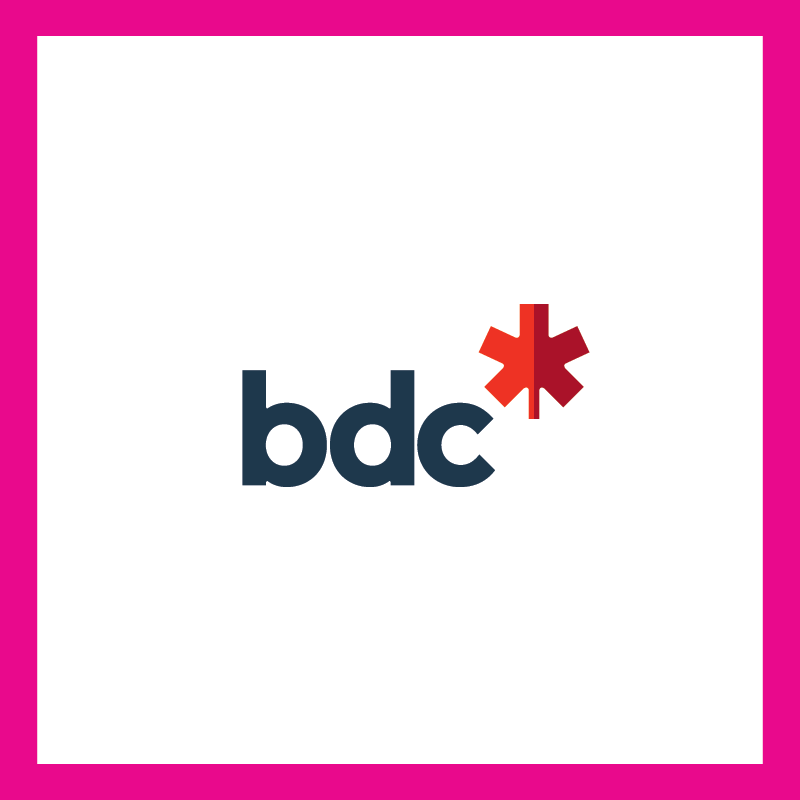Opening Virtual Doors for Underrepresented Communities
After Bobbi Racette was laid off from her oil and gas job in 2016 she started Virtual Gurus, offering services that connect businesses with virtual assistants. Learn how Bobbi Racette became a leader and turned an idea into a multimillion-dollar tech company
By Jarom Moriyama-Bondar
Bobbie Racette started Virtual Gurus, an artificial intelligence-powered service that connects businesses with virtual assistants, after she was laid off from her oil and gas job in 2016. We sat down with Bobbie to talk about her business journey, how Virtual Gurus creates opportunities for underrepresented communities, and her hopes for Calgary’s LGBTQ2S+ community.
PIB: What inspired you to start Virtual Gurus?
Bobbie Racette: After the oil and gas layoffs in 2016, I signed myself up as a freelance virtual assistant but soon realized the agencies available at the time were failing to deliver a sense of job security or satisfaction. I thought the only way to fix this was to create something myself. My goal was, and always will be, to provide work to marginalized folx.
Virtual Gurus’ Bobbie Racette at the Start Alberta Tech Awards (Provided by Virtual Gurus)
PIB: Can you tell us about what Virtual Gurus offers?
BR: Virtual Gurus is a talent marketplace that matches organizations with remote administrative workers — virtual assistants (VAs). Businesses who need fractional support with ongoing tasks or project work can sign up for a monthly subscription package starting at 10 hours per month or more, depending on how much help they need. If their needs change, they can scale their subscription up or down or add more virtual assistants with different skill sets. The types of tasks our VAs can support range from general admin to more specialized work such as bookkeeping or social media management
One of the things most people wouldn’t realize about how we match organizations with virtual assistants is that there is a lot of technology behind it. We’re adopting machine learning and AI to consider a whole range of variables about both the clients and our talent to curate the best possible matches.
The other thing that sets us apart from our competitors is how focused we are on our mission to provide employment opportunities for underrepresented communities. We have specific goals around this, and we’re incredibly proud of the diversity of our talent as a result.
Virtual Gurus office
PIB: What brought you to Calgary?
BR: My Indigenous Mom and her life partner, my other mom, raised me in Regina, Saskatchewan. When I turned 18, I started travelling anywhere and everywhere, living in orchards like the Okanagan Valley and picking fruit, to travelling the UK for a few years, to living in Mazatlan, Mexico. I moved to Montreal and ended up living there for about nine years – a time which I absolutely loved. But I knew I needed to leave there and live closer to home as I — and my parents — were getting older. So I moved to Calgary in 2012 and worked in oil and gas as a safety technician.
PIB: What’s your impression of the LGBTQ2S+ community in the city?
BR: Calgary is beginning to be a bit more inclusive, but we still have work to do. As an Indigenous LGBTQ2S+ person, who was raised by lesbians, I have witnessed a lot of adversity. We need more representation for people of colour in our community. With that, I wish there were more safe spaces for us to go in the city, especially for those in business like myself.
PIB: How do you feel Virtual Gurus contributes to the LGBTQ2S+ community?
BR: We welcome and encourage members of the LGBTQ2S+ community to join us, either as virtual assistants or as part of our management team. Since I identify as lesbian and openly talk about it in the media, I hope the message is clear that all are welcome at Virtual Gurus. We also partner with organizations like the CGLCC on events and programs for LGBTQ2S+ owned businesses, and we continue to look for more ways to engage with the community. I have set out on a mission that by 2024, 45 percent of our contractors will be members of the LGBTQ2S+ community.
Virtual Gurus team
PIB: What is it like to be in business in Calgary and be a member of the LGBTQ2S+ community?
BR: As a lesbian in the Startup Community, I can say that I have been welcomed with open arms. However, there are very few lesbians in tech here in Alberta, which makes me think we have more work to do. We need to keep creating movements that bring economic empowerment to our community. We as a community need to work together to inspire other LGBTQ2S+ folx to come out and start businesses. To do that, we need to provide more support, resources and have open conversations with other leading business groups in the city.
“We as a community need to work together to inspire other LGBTQ2S+ folx to come out and start businesses.”
PIB: What advice would you have for anyone looking to start their own business?
BR: If there is one theme I’ve noticed among founders and entrepreneurs who have lived through similar journeys to mine, it’s resilience. They all had to push themselves to overcome challenges — they didn’t give up when times were tough. Their stories inspired me to get up every morning and realize that I wasn’t the only one and that I could succeed if I persevered. So I’d suggest finding ways to connect with communities of business owners who share some of your challenges.
PIB: Can you tell me about how you champion inclusion and diversity in your business?
BR: Our whole mission is to create opportunities for underrepresented folx — they’re our North Star. We’re specifically looking to hire more people of colour, indigenous peoples who live in remote communities, people living with alternate abilities and members of the LGBTQ2S+ community. By 2022, my goal is to have 65 percent of our talent coming from underrepresented communities.
And we’re looking at ways to help members of these communities re-skill if they don’t yet have the expertise our clients need. For example, we recently launched a scholarship program for Indigenous graduates who want to become virtual assistants. We also have a whole roster of affordable courses available through our Virtual Gurus Academy.
It inspires me every single day to know that we’re giving jobs to people who may have struggled to find work in the past.
Virtual Gurus CEO Bobbie Racette (Provided by Virtual Gurus)
PIB: What do you look for when hiring?
BR: Values are one of the key aspects we consider. We look for people who are passionate and empathetic and who are comfortable with and excited about our social mission to provide opportunities for underrepresented folx.
PIB: What impact has COVID had on your business?
BR: When COVID hit, the panic set in fast, and when we started to lose clients, we also had to think about all the workers using our platform — many of whom had used it as one of their primary sources of income. So while we wanted to maintain our client base, we had to also think about how we could keep the VAs working.
We ended up building our People over Profit program, where we offered 110 startups across Canada free services so they wouldn’t have to worry about their back-end support while they adjusted to pandemic conditions. In addition, we also offered discounts of almost 40 percent off to small businesses that came in; this helped us keep our VAs working. Finally, we recognized our current clients who had taken a hit, and we allowed them to pause for up to 60 days.
We weren’t immune ourselves, though, and did take a big hit through COVID, but realizing that we could make a difference for others motivated us to keep going and brought us together as a team. I’m happy to say that 2020 turned out to be quite a successful year for us, resulting in close to a 300 percent year-over-year growth.
PIB: Are you open to being approached by members of our community who would like to connect on topics we discussed in this article? How do you prefer to be contacted?
BR: Absolutely. The best way to connect with me is through LinkedIn
Pride In Business article in partnership with TD.
By Jarom Moriyama-Bondar










